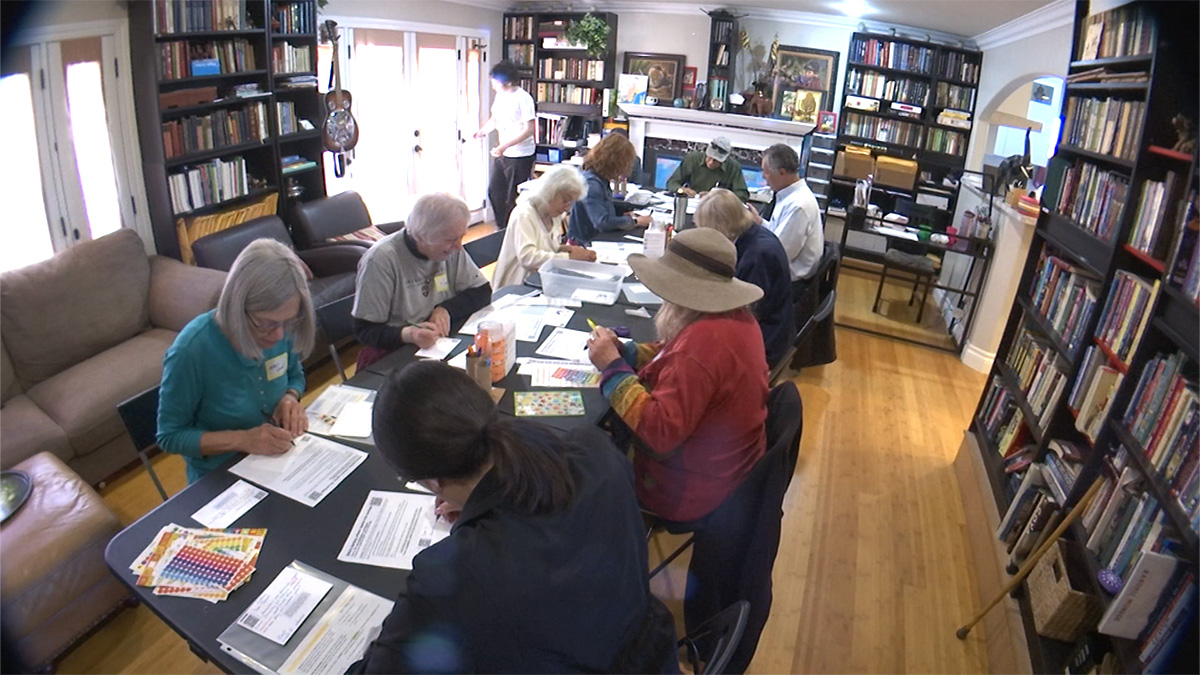SAN JOSE - Silicon Valley companies are creating more mobile health apps and getting more financial backing than ever before. You can now use your phone to help diagnose an ear infection, and even monitor a diabetic child's blood sugar.
"It's the next big thing, no question about it,” Vital Connect CEO Nersi Nazari said of mobile health.
Vital Connect in Campbell just launched the HealthPatch MD. It’s a patch that sticks onto the skin and provides constant heart monitoring and tracks pulse, respiratory rate, and other health metrics. It’s the first device of its kind and available for doctors or loved ones to track someone with a heart condition.
"It does heart rate...also ECG of the same quality that when you go to a checkup,” Nazari said.
Vital Connect is already developing a smaller, faster, all-encompassing patch. Nazari is part of a growing industry that incorporates technology and health care. While his product is a clinical device, and not one consumers can simply buy at home, he says mobile health is the next frontier for Silicon Valley.
"These technologies can bring the cost down. At the same time the patient is more comfortable,” Nazari said. “He doesn't have to go to the doctor if he doesn't have to and is very much instantaneous.”
The market is expanding for consumer health apps too. Apple included a ‘Health’ application when it launched the iPhone 6, allowing people to track health and fitness.
Local
San Francisco based Sproutling is taking parenting to the next level. Developers made an app and device to track your baby's sleep and mood. It’s basically a super charged baby monitor.
Cellscope has found a way to turn your phone into an otoscope to help check your child’s ear for infection. The video recording you take in the app is sent to a doctor.
“The doctor responds within two hours and gives you a diagnosis, a treatment plan, can call in a prescription if necessary,” said Cellscope CEO Erik Douglas.
San Diego based Dexcom has developed an app that allows people to monitor the blood sugar level of a loved one.
Many doctors say you should consult with them before using an app or phone for health reasons. However, many doctors are taking notice of the apps. A study from PricewaterhouseCoopers shows 86 percent of clinicians believe mobile apps will become important to physicians for patient health management over the next 5 years.
Diving deeper into the mobile health apps, Stanford researchers are using phones to try and cure cancer. They are led by Stanford Professor Vijay Pande.
"Think about what supercomputers could do ten years ago, your phone can actually do really well compared to those things,” Pande said.
The project is called Folding@Home. You download the app and they do the rest. Researchers combine the 180,000 phones signed up already to make a digital supercomputer.
While you sleep and your phone is not in use an equation is sent to your phone. The app uses the power of your phone to solve the equation then send it back. Your data will not be affected, and Pande says they cannot access any of the information on your phone.
“In a sense any one phone or computer might not be that powerful, kind of the way one snowflake isn't that powerful. But put enough of them together and you can shut down a city. If you put enough processors together you can really do something significant,” Pande said.
The research team uses that power to make billions of small calculations. The more people on the app the faster they believe they can find a cure.
"If we can figure out what the next big drug would be that would be the difference between life and death. So what we'd like to be able to do is to use our computational methods to predict what the drugs patients should be taking are,” Pande said.



